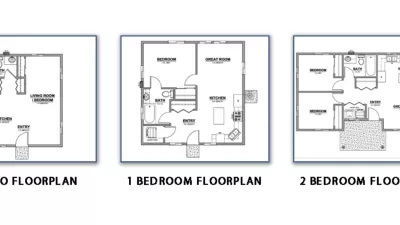SB 1120 is the latest law proposed in the California Legislature to preempt restrictive local zoning.

The Terner Center for Housing Innovation has published a detailed analysis of SB 1120, a law proposed in California as the latest attempt to ease development restrictions and spur housing development in the infamously expensive state.
The effect of SB 1120 would be similar to similar planning innovations in the cities of Minneapolis and Portland, as well as the state of Oregon: to end the exclusionary regulations of vast swaths of single-family zoning.
As written, SB 1120 affects single-family parcels in two ways that could ultimately lead to up to four homes on lots where currently only one exists. First, the proposed legislation would allow existing single-family homes to be converted into duplexes. Second, the proposed legislation would allow single-family parcels to be subdivided into two lots, while also allowing for a new, two-unit building to be constructed on the newly formed lot.
While the paper predicts the potential for the proposed law to facilitate the construction of a significant number of new units in the state, the final total would be determined by local regulations and financing opportunities.
The analysis includes an assessment of the number of parcels statewide that would be eligible to split as defined by the bill's current language. According to the paper, millions of parcels would be eligible to split— 5,977,061 to be exact. In a state with about 12.5 million parcels in total, that would be a significant amount of potential change.
FULL STORY: Single-Family Zoning Reform: An Analysis of SB 1120

Maui's Vacation Rental Debate Turns Ugly
Verbal attacks, misinformation campaigns and fistfights plague a high-stakes debate to convert thousands of vacation rentals into long-term housing.

Planetizen Federal Action Tracker
A weekly monitor of how Trump’s orders and actions are impacting planners and planning in America.

In Urban Planning, AI Prompting Could be the New Design Thinking
Creativity has long been key to great urban design. What if we see AI as our new creative partner?

Pedestrian Deaths Drop, Remain Twice as High as in 2009
Fatalities declined by 4 percent in 2024, but the U.S. is still nowhere close to ‘Vision Zero.’

King County Supportive Housing Program Offers Hope for Unhoused Residents
The county is taking a ‘Housing First’ approach that prioritizes getting people into housing, then offering wraparound supportive services.

Researchers Use AI to Get Clearer Picture of US Housing
Analysts are using artificial intelligence to supercharge their research by allowing them to comb through data faster. Though these AI tools can be error prone, they save time and housing researchers are optimistic about the future.
Urban Design for Planners 1: Software Tools
This six-course series explores essential urban design concepts using open source software and equips planners with the tools they need to participate fully in the urban design process.
Planning for Universal Design
Learn the tools for implementing Universal Design in planning regulations.
planning NEXT
Appalachian Highlands Housing Partners
Mpact (founded as Rail~Volution)
City of Camden Redevelopment Agency
City of Astoria
City of Portland
City of Laramie





























